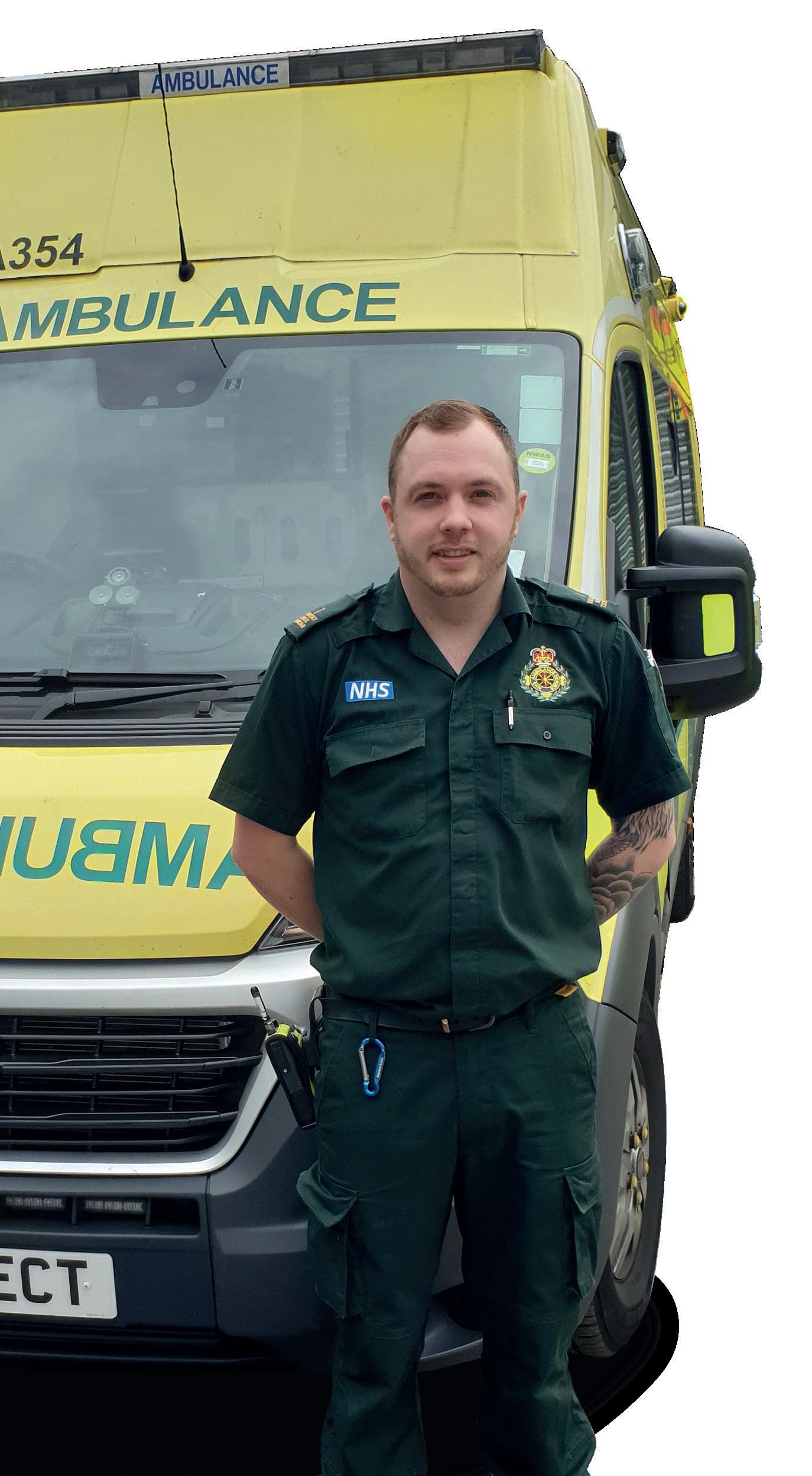
2 minute read
How do you know if your career is right for you?
A question Emergency Medical Technician (EMT) Ellis Neill, who has dyslexia, knows all too well how to answer.
Before joining the ambulance service, Ellis studied lighting and technology design at college while working at a restaurant as a waiter/ bartender. Having dyslexia meant that throughout his academic life, he found he was more of a practical, hands-on learner, so a career in backstage performance seemed a good fit.
That was until, by chance, he saw a programme on the television about community first responder (CFR) volunteers and at that moment, he found his life plan flip upside down. Ellis did a bit of research in his local area, applied to become a CFR, was successful, and volunteered while still studying at college and working in the restaurant.

“The more hours I volunteered, I found myself wanting to study more and work less. I loved volunteering; it made me happy meeting and helping members of my community. I also loved the relationships I was building with the local ambulance crews.
In 2016, Ellis applied to become an EMT and successfully made the jump from CFR to EMT. He then went on to do his national standard associate ambulance practitioner qualification. He didn’t need this qualification for his job, but would need it to become a paramedic. It was at this stage he hit a stumbling block with his dyslexia.
“I found the course challenging as I had a lot of independent learning to do, which was a struggle for me. I was literally about to give up when I was assigned my course tutor, NWAS Clinical Practice Educator Dawn Jamieson. Dawn understood some of the challenges I was facing in the course with my dyslexia and almost gave me a shake-up and made me believe in myself. It was through her help and belief in me that I got the qualification.“
Ellis is now studying for the new paramedic apprenticeship role with Cumbria University, which will see around 1,000 paramedics trained over the first two years nationally, significantly increasing the country’s paramedic workforce.
“I love my job, and I think that it is possible to follow your dreams whatever your academic background. I have put in place systems and methods which help me; for example, I have made flashcards for spellings which I keep with me on shift for when I’m filling patient record forms in as there are certain words I get confused with.”
“When working at the restaurant, I used to wake up with sweats in the middle of the night and be crippled with anxiety about forgetting to deliver mayonnaise to a table. In the four years of doing the job I do now dealing with life and death situations, I’ve yet to have a bad night’s sleep. My job is right for me!”
Clinical Practice Educator Dawn Jamieson said:
“Often people with dyslexia gravitate to a vocational, hands-on career and Ellis fits that profile. Everyone’s experience of dyslexia is unique to them, having their own learning style and abilities.

“Dyslexia, a Specific Learning Difficulty (SpLD) is not a lack of intellect or the ability to learn, but poor results at school or past educational failures can affect a person’s confidence and self-esteem as an adult. With peer support and a positive attitude to achieve, aspirations can be realised – Ellis is a shining example of this.”










